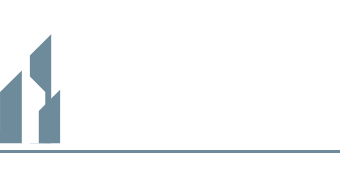Maclean and Jordan talk about all the big BC/Canada/US political issues – including the early returns on the BCUC’s gasoline price review; the political futures of Doug Donaldson and Sonia Furstenau, the nattering nabobs of NIMBYism, the ascendant Kamala Harris, and some Beto bashing. And a little CFL to boot!
Month: July 2019
TRAINING THURSDAY: Construction Project Management
Looking to enhance your skills as a project manager? Check out our Construction Project Management workshop! The next one is July 18-19 in Burnaby, followed by October 17-18 in Kelowna and October 21-22 in Prince George.
Here’s just some of what you’ll be able to do by the end of this two-day session:
- Understand the importance of project planning
- Understand the Project Management Body of Knowledge (PMBoK 5th Ed)
- Use the appropriate CCDC/CCA contract and/or Purchase Orders for the project
- Use risk management tools and mitigate for risk
- Understand the estimating process
- Understand the importance of scheduling and use appropriate scheduling tools
- Understand expectations management and adapt communication accordingly
- Understand the components of projects – labour, materials and overheads – and use of techniques to maximize job profitability and minimize costs
- Do post-mortem analysis after project completion
- Understand the impact and methodology of construction cost control
- Use of site and office project cost control methods
- Use Construction Industry Codes to analyse costs vs budget
- Adapt the project estimate to a project budget
- Understand how job costing fits within the overall accounting systems
- Understand Return on Investment (ROI) and how this impacts required project profit margins
- Understand the contract process from bidding to project close-out
- Use of job profit forecasting methods to integrate into company forecasting systems
- Understand the importance of cash flow projections for construction companies
Plus, you’ll earn 32 CPD Points from BC Housing! Register for this or any of our other upcoming courses atwww.icba.ca/courses.
OP-ED: Why Does Vancouver City Council Hate Renters?
By Chris Gardner, President, Independent Contractors and Businesses Association. This piece first ran in The Province on July 8, 2019.
In the race for worst city council in British Columbia, Victoria gets most of the media buzz.
 It’s no wonder why, given Victoria’s debates over such stupid ideas as trying to ding veterans to pay for Remembrance Day, trying to ban the iconic horse-drawn carriages in Beacon Hill Park, cutting important police units to cover John Horgan’s employer health tax, or trying to get rid of poinsettias in city hall because they are somehow a “Christian” symbol. Times Colonist columnist Jack Knox isn’t kidding when he calls Victoria “Dysfunction-by-the-Sea”; this might be the one of the more polite things that town has been called lately.
It’s no wonder why, given Victoria’s debates over such stupid ideas as trying to ding veterans to pay for Remembrance Day, trying to ban the iconic horse-drawn carriages in Beacon Hill Park, cutting important police units to cover John Horgan’s employer health tax, or trying to get rid of poinsettias in city hall because they are somehow a “Christian” symbol. Times Colonist columnist Jack Knox isn’t kidding when he calls Victoria “Dysfunction-by-the-Sea”; this might be the one of the more polite things that town has been called lately.
Yes, Victoria is bad. But there’s another sprinter making up ground in this race to the bottom. Vancouver City Council may yet earn its spot as the province’s worst council. While Victoria’s dumb ideas are splashier, Vancouver’s blunders may have far worse effects long-term.
Last month, Vancouver council voted 7-4 to reject a 21-unit rental townhouse proposal for Granville Street in Shaughnessy. Their arguments to kill this development were preposterous.
Some councillors claimed the townhouses were too tall – but they were only three storeys. That’s very, very gentle density and obviously not a project that will tower over anyone. Others fretted over the excavation for underground parking, because the hole would initially cover the entire site. Does council now prefer people park above ground?
Truthfully, the council was scared off by a neighbouring hospice facility, which drove a number of protestors to the public hearing. The hospice – like every other NIMBY (Not In My BackYard) before it – claimed the rental townhouses would bring such a confluence of noise, traffic and view-killing 3-storey buildings that life in the neighborhood would be rendered unbearable.
So the plan was defeated. Now, the property owners have shifted gears and will build a 12,000 sq. ft. single-family mansion on the site. In a city crying out for affordable housing, Vancouver City Council traded 21 rental units to get a new mansion.
This isn’t the only recent debacle in rental housing. Dan Fumano of the Vancouver Sun reports that of the 20 proposals selected just last year for Vancouver’s affordable rental housing project, six have already withdrawn. More are likely to fall apart in the coming months.
A five-storey, 63-rental unit complex proposed for Kitsilano is basically the second-coming of the Empire State Building and will crush Kits, if you believe the NIMBYs there. The same arguments killed 105 Keefer in Chinatown. The word in the protest community is out: if you can get a couple of dozen people yelling and screaming that ‘the end is near’ to a public hearing, councils will fold like cheap suits.
Vancouver City Council has made quite a mess and they have only themselves to blame for it. The nexus between housing affordability and families looking to purchase homes at reasonable prices meets at City Hall and the results do not end well for homebuyers.
The City’s tax and fees on development are ridiculous. Close to 30 per cent of the cost of building a condo in Vancouver is now direct taxes, development cost charges, community amenity charges, and dozens of other fees paid to the city. That’s an unbelievable markup.
Vancouver takes too long to make a decision on these projects. The city council’s erratic handling of proposals is stunning – how did we get to a place where it takes longer to approve and permit a housing project than to build it.
When even the projects the city says it wants – like affordable rental housing – get defeated, it’s no wonder developers are walking away from Vancouver. The most recent provincial budget anticipates housing starts to drop by a third over the next two years, and the Conference Board of Canada now has “negative expectations” for Vancouver housing starts both short- and long-term.
A council attacking poinsettias and horse-drawn carriages is stupid. A council making it impossible to build rental housing is flat-out dangerous.
TRAINING THURSDAY: Construction Law
ICBA CONVERSATION: Jas Johal on Massey, LNG, Electric Vehicles, Climate Change and more
Richmond-Queensborough MLA Jas Johal dropped by the ICBA office to chat with Jordan Bateman about the NDP’s lack of progress on a new Massey Tunnel or bridge; LNG and electrification and other ways we can fight climate change; EV subsidies; and much more.
TRAINING THURSDAY: Trenching and Excavation Safety Workshop
Does your work involve trenching and excavation? If the answer is yes, our Trenching and Excavation Safety Workshop is for you!
Safety should always be a top priority on the job site, and that’s particularly true when it comes to ground disturbance. This workshop walks participants through a comprehensive program that includes what the WorkSafeBC Regulations & Guidelines state, safe work procedures and what to do if something goes wrong.
It covers shoring, benching, sloping and shielding systems. It also includes a section on location of underground utilities and the geotechnical and structural engineered documentation requirements.
By the end of the course you’ll be able to:
- Identify hazards around trenches and excavations
- Be able to locate underground utilities
- Understand soil types, soil collapse patterns, and warning signs
- Gain familiarity with WorkSafeBC regulations
- Understand geotechnical and structural engineered documentation
- Understand sloping and benching
- Understand shoring and shielding systems
- Describe and demonstrate where possible safe installation and removal processes
- Identify emergency procedures for a trench collapse
Plus, you’ll earn 8 CPD Points from BC Housing! Our next session is in Burnaby on July 31, followed by Victoria on August 29, Kelowna September 26, and Prince George October 10. Register for this or any of our other upcoming workshops at www.icba.ca/training.
PUBLIC POLICY: ICBA Signs On to 46-Member WorkSafeBC Review Submission
ICBA is one of 46 employer associations to sign a single submission to the Workers’ Compensation (WorkSafeBC) System Review.
We believe WorkSafeBC is a well-funded, well-operated and sustainable workers’ compensation system which is “best in class” in meeting the balance called for in the century-old ‘historic compromise’ which traded off a worker’s right to sue in tort for fair wage loss compensation and rehabilitation services. We acknowledge that the system may need some adjustments to benefits, but such change should be consistent with prevailing rates provided in other Canadian jurisdictions and acutely mindful that the system needs to be sustainable.
For our full submission, click HERE.
NEWS RELEASE: Government Loses Key Court Decision on Union Monopoly
VANCOUVER – The NDP Government’s attempt to keep their controversial payback to their union supporters out of BC Supreme Court has failed, and the Independent Contractors and Businesses Association (ICBA) and several other groups will have their case heard by a judge.

Justice Christopher Giaschi ruled today that ICBA and its allies can proceed with our challenge to the legal authority of the Government to impose the “Building Trades Only Requirement” on public construction projects such as the Pattullo Bridge replacement.”
The NDP Government had sought to kick the issue down to the Labour Relations Board (LRB), which the provincial cabinet appoints. But Justice Giaschi said ICBA’s challenge to the exercise of a statutory power (government policy) imposing a building trades union-only requirement on public infrastructure projects, should be heard by the court, not the LRB.
“We’re now full-speed ahead on our legal challenge of this unfair, regressive, union-only monopoly,” said Chris Gardner, ICBA President. “We look forward to making our case against this sweetheart deal the NDP has handed their best supporters. The choice of which union to join, if any, should be made by the workers through a secret ballot, and should not be forced by government.”
Gardner noted the first project under the new union monopoly is already over budget. Earlier this year, the Illecillewaet project near Revelstoke, which will widen Highway 1 to four lanes for two kilometres, was awarded to a building trades union-organized company. The contract came in at $85.2 million – $22.3 million more than originally budget before work even started.
Joining ICBA’s petition are organizations that, along with ICBA, represent the 85 per cent of construction workers in B.C. who are not affiliated with the building trades unions: the British Columbia Construction Association; the Vancouver Regional Construction Association; and the Progressive Contractors Association of Canada. Also participating are the B.C. Chamber of Commerce and the Canadian Federation of Independent Business.
In addition, two progressive unions representing thousands of construction workers in B.C. who are not affiliated with the building trades unions – the Christian Labour Association of Canada (CLAC), and Canada West Construction Union (CWCU) – are supporting the legal challenge.
“B.C. taxpayers deserve better from this government – not overspending by hundreds of millions of dollars on projects just to thank their union supporters,” said Gardner. “Bidding on government projects should be fair: the best bid should win, no matter how their workforce is organized.”
For more on the challenge, click HERE.
For today’s decision, click HERE.
TRAINING THURSDAY: An Overview of Tendering Law (Breakfast Session)
As a method of procurement, tendering can be fraught with risks. Errors in accepting or evaluating bids can result in legal liability on the part of the tendering authority, or errors in the bid submitted in response to an Invitation to Tender can result in legal liability on the part of the bidder. The law of tenders is complicated and constantly evolving as the courts and the construction industry adapt to new technology and evolving project delivery methods. Let us help you with our Overview of Tendering Law breakfast session on August 9 in Burnaby!
Here’s the course outline:
- Introduction to the law of tendering including an overview of:
- The difference between tenders and RFPs and other procurement methods
- The bidder’s obligations to the tendering authority
- The tendering authority’s obligations to the bidder
- Tendering case law update and discussion of recent decisions
- Practical tips and advice on key aspects of tendering
Plus, you’ll earn 2.5 CPD Points from BC Housing. Register for this or any of our other upcoming courses at www.icba.ca/courses.
Looking to hear more from our training team? Sign up for our bi-weekly training newsletter at www.icba.ca/trainingnewsletter.

